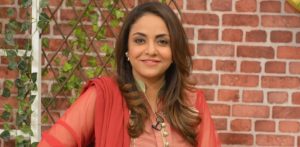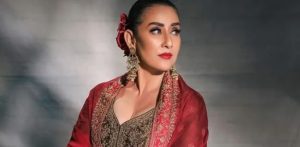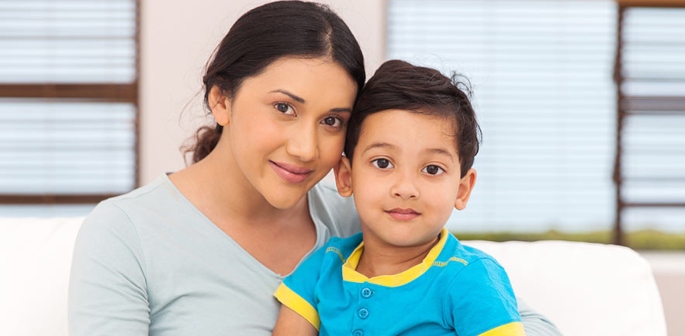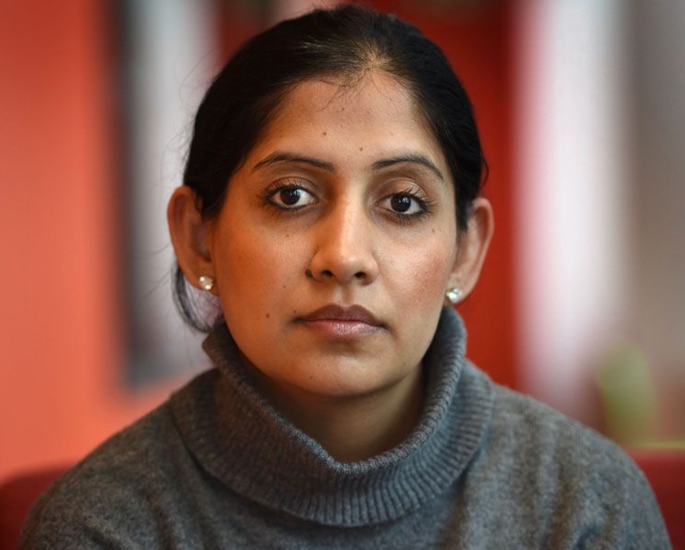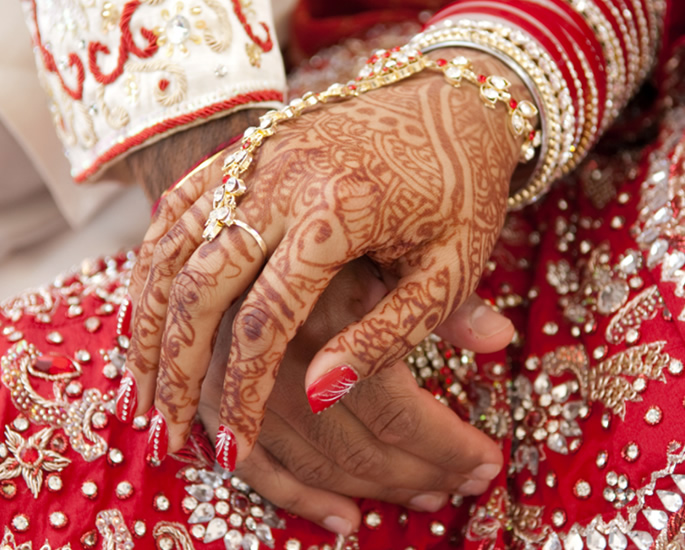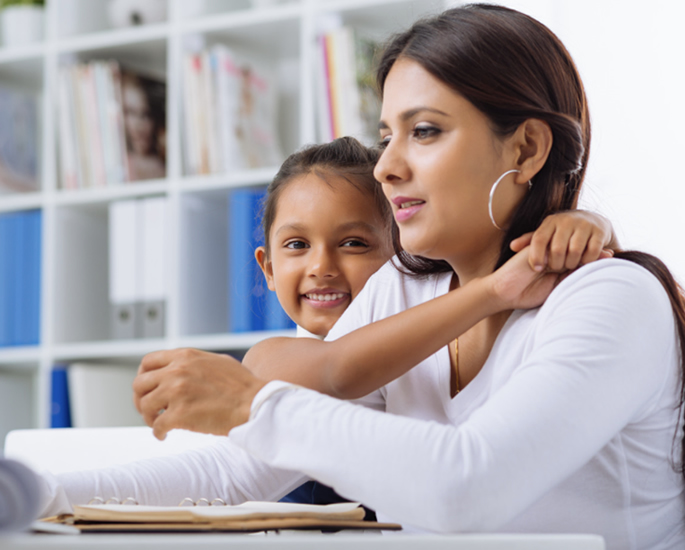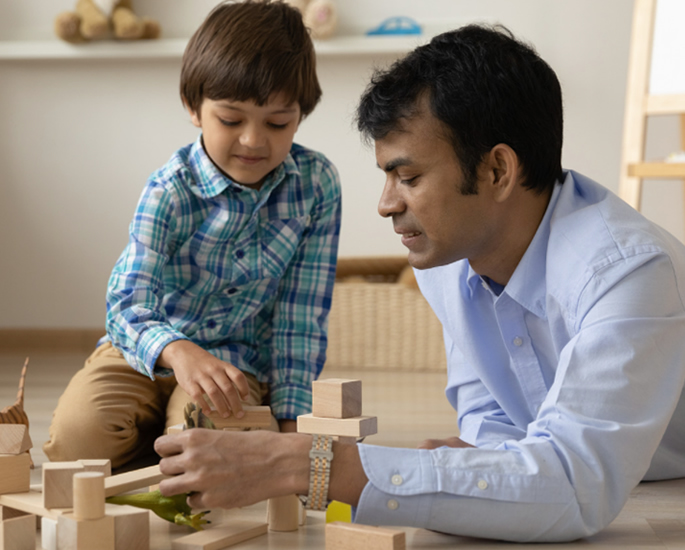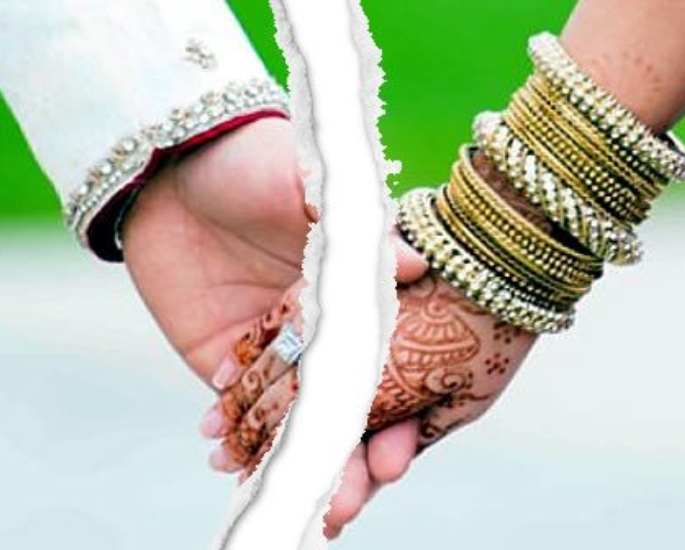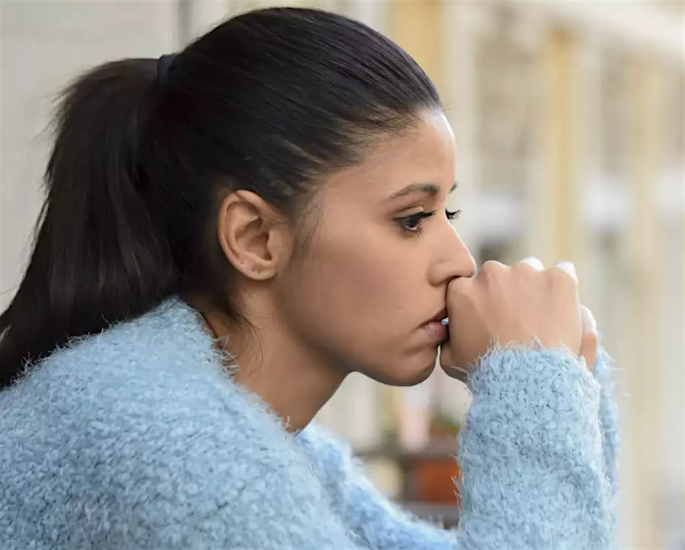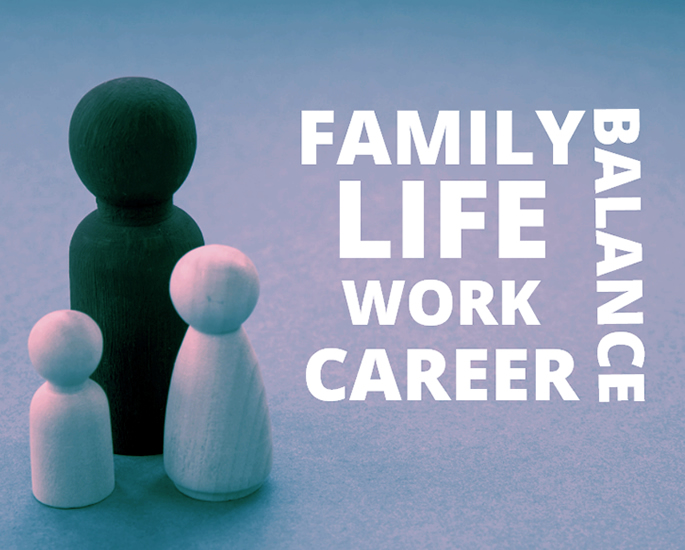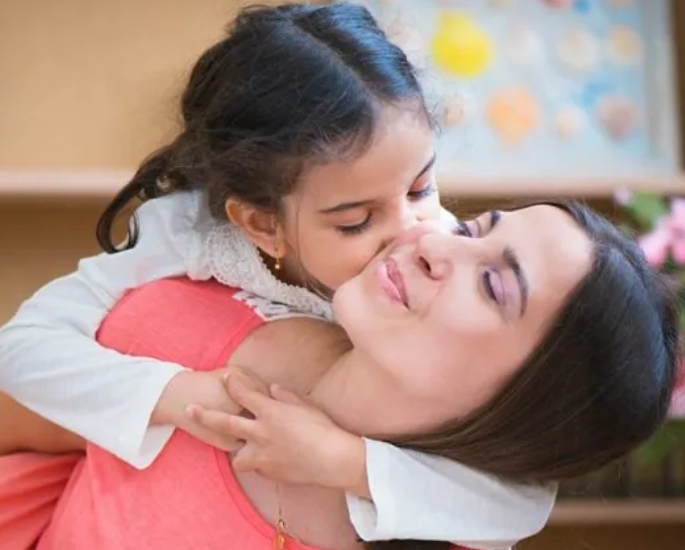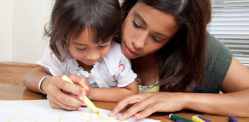"The kids were better off without their dad"
Globally in Desi communities, a family with two heterosexual parents is still highly idealised. Yet single Desi parents are far more common than people realise.
According to 2014 data from the Organisation for Economic Co-operation and Development (OECD), 17% of children live in single-parent households worldwide, with 88% of single parents being women.
Moreover, in 2020, of the 195.4 million households in the European Union (EU), approximately 14% (7.8 million) consisted of single parents. Thus, accounting for 4% of total households.
Yet negative connotations are attached to single-parent families, politically and socio-culturally.
Indeed, single parenthood can be viewed by society at large as a hallmark of failure. Thus, stigmatising single Desi parents and their children.
Over the years it has been claimed that single-parent homes can be sources of poverty, educational failure and delinquency.
Although, these stereotypes are beginning to be rightly shattered.
Often when people think of single parents, they imagine people who have separated or divorced.
However, single Desi parents can also be widowed or have chosen to have a child by themselves.
Accordingly, single parents are not just the result of separation and divorce. Here, DESIblitz explores the experiences of single Desi parents.
Such exploration highlights the issues and challenges that manifest for these single parents but also the joy and close ties that are created.
Cultural Stigma & Judgement
Across the South Asian diaspora, there remains a stigma attached to single parents.
Negative judgements are especially prominent when single parenthood is a result of separation and divorce.
In 2011, Aruna Bansal set up the Asian Single Parents Network CIC, recognising the gaping hole that existed in supporting single British Asian parents.
Aruna helped fill this void by creating a non-profit network that offers culturally sensitive support to single Desi parents.
It is a network that reduces isolation and creates a safe space for both parents and their children.
Aruna set up the network due to her own experiences as a single parent.
Notably, she recognised single Desi parents within South Asian communities could not access dedicated support systems.
More alarmingly, this means these parents are unaware of how to overcome negative attitudes, perceptions and challenges. Aruna asserts:
“The stigma is still very much there. Things have changed…but in the Asian community the stigma hasn’t gone away.”
Aruna emphasised that the single Desi parents in her network, both men and women, do not advertise that they are part of it.
There is still a level of secrecy due to the negative connotations associated with being a single Desi parent.
Socio-cultural stigmas and judgment have lived consequences. Both can lead to a sense of isolation, disenfranchisement, discomfort and anger.
Shamima Kauser* a 32-year-old British Bangaleshi is a single parent to a newborn baby in Birmingham. She finds herself enraged and hurt by the socio-cultural judgement she feels she receives:
“In the Asian community, we are stigmatised big time.
“Either because we’re assumed to be b*****s or blamed for choosing the wrong person, or it’s assumed we did something.
“Our religion (Islam) is beautiful in supporting women.
“But our culture can be monstrous in how it can tarnish women who are single mothers.”
Additionally, single parenthood is something Shamima never envisioned for herself:
“No one in my family is a single parent. So I never thought I would be a single mother, battling things on my own.”
For Shamima, even as she lives with her parents and gains day to day support, she feels alone. She has a deep sense of being judged by the Asian communities and families.
Shamima is at the beginning of her journey as a Desi single parent. She is determined to do all she can to raise her son well and to shift him away from “negative cultural influences”.
Yet simultaneously, Shamima’s thoughts are rippling with wariness. Wariness she feels due to the “battles” she will have to fight with her community and family, financially and structurally.
The stigma and negative judgments attached to single Desi parents in the Asian community are in part due to how cultural traditions of family and marriage remain idealised.
The Cultural Idealisation of Marriage & Family
Within South Asian communities, heterosexual marriages and starting a family are seen as key aspirations.
Marriage is positioned as a poignant stepping stone before South Asians have children.
Indeed, this is especially true for Desi women. This is in part due to the continued policing of female sexuality and bodies through narratives that make marriage essential.
Overall, South Asian cultures ideologically position sex as something that occurs in the marriage bed.
Whilst this is not always the case, it is a firmly held concept. However, the reality is children can come with or without marriage.
Sidra Khan*, a 34-year-old American Pakistani and single mother of two girls has begun to question cultural norms and notions.
Such questioning arose after her divorce and due to a close friend choosing to adopt.
“I was raised with the idea that marriage was essential to have children.”
“It’s an idea we never question, you don’t think about it. It’s only now I question it all.
“Adoption is a viable option, there are so many kids from our community in need of homes.
“Truthfully I’m doing better as a single mum than when I had my husband in the home.”
For many like Sidra, the cultural norms that connect marriage and parenthood together are deeply ingrained.
Nevertheless, traditionalist ideas and expectations encompassing parenthood are slowly being challenged within Desi communities.
South Asians Choosing to be Single Parents
Due to modern medicine and greater financially stability, Desi individuals who wish to become single parents can.
In Vitro Fertilisation (IVF) is one of the most common ways for people to become single parents.
Natasha Saleem* is a 33-year-old British Pakistani/Indian woman living in Sheffield, England, who took the unconventional route for a South Asian.
After a hard divorce, she decided to have a child on her own:
“My marriage and divorce were nightmares. I’m much happier single. But the fact is I wanted a child.
“There is a risk of me menopausing early, it’s in my family history and I wanted the experience of being pregnant.
“I was in a financial and emotional position where I was fully able to do it on my own. I went entirely against the norm.
“I don’t regret it for one minute, one of the best decisions of my life. And Ava* has missed out on nothing, she’s well-rounded much more so than I was.”
For Natasha, being raised in a two-parent household is not essential to good childrearing.
She feels strongly about this after witnessing marriages in her family and the experiences of those who became single mothers.
The lack of awareness of the fact that single parenthood can be a choice can lead to frustration.
Natasha continues to find herself exacerbated by how startled people are that she chose to have a child alone:
“The frustrating thing is people assume I’m divorced when I say I’m a single parent.
“When I say I decided to have a child myself the reactions vary from absolute shock to dismay.
“These reactions are specific to the Asian community, especially when it comes to Asian elders.
“I remember one woman whose eyes bulged out, and she asked me not to mention my choice to her granddaughter. This was at a family wedding.”
For some, single parenthood from the get-go as a choice seems taboo and shocking.
For Natasha, it has led to whispers and some comments over the years, specifically from older Desi generations and some Desi men.
Yet rather than hiding from such whispers, Natasha challenges these outdated and unequal idealogies:
“Honestly, having Ava* by myself has been so rewarding. Have there been issues? Yes, like there are for any parent.
“So if I hear anything negative or whispers, I do not stay quiet.
“I’m not aggressive but staying silent is not an option for me.”
The fact Natasha had the unwavering support of her immediate family further helped make single parenthood a joy.
The wonders of modern science and technology also allow Desi men to become single fathers if they wish to.
Yusef Khan, originally from Pune in India, became a single father in 2019 after the 12th attempt at an IVF and surrogacy was successful.
His applications for adoption had been rejected for a decade.
Yusef told The Times of India:
“I didn’t grow up thinking about finding a life partner. I was already quite set in my ways.
“I didn’t have a relationship gene but had a very strong parenting one. I have wanted a child for as long as I can remember.”
Yusef went on to assert that there is a need to showcase the role of men as fathers – whether single or married:
“What we’re doing is not to be hidden, but to be celebrated.
“I hope to inspire other married men or single men to look after babies, hands-on, change diapers, feed and burp them.
“It’s not only a feminine trait to look after a baby.”
Yusef’s words touch on the fact that gendered assumptions around parenthood and caring are quite prominent.
These beliefs are deeply embedded in Asian culture, where women are seen as the more nurturing gender. However, with cases similar to Yusef’s increasing, there could be a welcomed shift in gender dynamics.
Single Parents & Gender Dynamics
Interestingly, data from across the world highlights that the majority of single parents are mums.
In 2019, the UK charity Gingerbread asserted that 90% of single parents are women, with around 10% of single-parent households headed by single fathers.
Figures show that in the UK, single father households tend to be smaller, and are more likely to have both dependent and non-dependent children in them.
While single mother households in the UK are more likely to have dependent children (16 years and under or aged 16-18 and in full-time education).
The above gender differences reflect the tendency for young children to remain with their mothers following a separation.
Sonia Mahmood* a 25-year-old British Pakistani based in London feels Desi single mothers are more common:
“It’s a fact isn’t it that there are more single mothers across all groups? I mean women are generally seen as being key carers for kids.
“It’s meant to be more natural for women to raise and look after kids. I’m not saying I agree but it’s how it’s generally seen.”
Gendered outlooks of South Asian motherhood and underlying patriarchy further marginalise single mothers in a way that single Asian fathers are not.
Yet that does not mean that single fathers themselves do not experience issues due to gender stereotypes and ideals.
Kabir Kapoor* a 36-year-old Indian Hindu single father of two became the primary parent after his divorce.
Based in Birmingham, UK, Kabir found the stereotypes and assumptions a challenge to navigate at the start:
“I’d heard nightmare stories of how family courts give primary custody to mothers automatically.”
“That courts are exceptionally gender-biased.
“I was lucky in that, judicially, I didn’t experience such bias, although I have met fathers who have. For me what’s been difficult is the assumption that mothers are best.
“Unlike us men, they are natural-born carers, the social worker initially dealing with my case felt that way.
“It also means that when I say I am raising the boys, people can be in awe. In a way, they wouldn’t be if I was the mother.”
Within Asian communities and more broadly, the gendered ideals of motherhood that shape the image of parenthood need to be questioned and dismantled.
The Impact of Divorce/Separation
Within Desi communities, divorce remains somewhat taboo, both in Asia and the diaspora. Although divorce has become far more common, it is viewed as a social problem.
What’s more, separation can be seen as a failure and detrimental for children.
Shakeela Bibi* a 55-year-old British Pakistani woman based in London separated from her husband 18 years ago.
Shakeela has not officially divorced due to not wanting to spend money on a lawyer and the fact she never wishes to remarry. Thus for her, an official divorce is unnecessary.
She has four adult children and feels being a single parent was invaluable for her and her children:
“Even now over a decade later some people say ‘why not get back with him’, ‘you’re getting older’. Before it was – ‘think about the kids and get back with him’.
“But the arguing and his lack of engagement with the family was hurting everyone. Staying together would have been toxic for the kids and me.”
Shakeela highlighted that often, potential dangers to her izzat (honour) via her daughters “messing up” was used as a motivator to return to her husband.
Shakeela’s goes on to say:
“I come from a generation where permanent separation did not happen.”
“I have friends and family members who stayed in toxic and abusive marriages.
“I tried but then realised me and the kids were better off without their dad. I was already a single parent anyway, he really only engaged financially.”
In becoming a single Desi parent, Shakeela gained space to become more independent and discover herself.
Simultaneously in her eyes, her children gained “freedom”.
No longer did she or they have to cope with paternal family members pressures to conform. Nor did they have to deal with the judgment when they went against norms.
Additionally, Shakeela had early financial difficulties that she had to navigate herself but she regrets nothing. She is proud of the fact her children never knew when things were difficult.
As a single parent, she undertook educational courses due to not having finished school. This was something her husband did not want her to do.
Accordingly, she encouraged her children, especially her daughters, to focus on their education.
For Shakeela, education is a vital form of empowerment. The skills developed through education help facilitate self-reliance, confidence and independence.
Thoughts of a Daughter in a Single Parent Home
Shakeela’s daughter Ambreen Bibi* is a 30-year-old London based teacher who views her parents’ separation as a “blessing” for all concerned:
“Over the years when I’ve said my parents are permanently separated, people have been like ‘oh you poor thing’ or ‘oh I’m so sorry’.
“It makes me smirk and shrug because I do not get what they have to be sorry for. It was a blessing on so many levels.
“Mum was always awesome, we never felt like we missed out – emotionally or financially.
“Mum’s experiences meant she’s encouraged us girls to focus on what we want. She’s done that in a way that has shown us how to embrace the best parts of our culture.
“My brothers aren’t misogynistic like some of my cousin brothers. They had epic brat moments as teens but are great now.
“We haven’t faced pressure to marry and know things we wouldn’t have if they’d stayed together. I look at some of my cousins whose parents stayed together, when they shouldn’t have, and they’re messed up.
“And she (Shakeela) is happy, we’ve asked if she wants to remarry and it’s always a firm no.”
Divorce and separation can be emotionally detrimental for children and adults.
However, this is only some of the time. The reality is sometimes separation/divorce can be invaluable for the well-being of adults and children.
This latter reality needs to be acknowledged far more, both within Desi communities and more broadly.
Widowhood leading to Single Parenthood
Furthermore, single parenthood can also occur due to the loss of a partner/spouse.
Within Desi families/communities, widowhood can bring pressures around remarriage. In addition to assumptions around the damages that a lack of maternal or paternal influence could cause.
Meera Khan* a 35-year-old single mother of two from Kashmir, Pakistan, found herself as a single mother after her husband died.
Rather than staying with her in-laws, she returned to her parental home. She has her parents’ emotional and practical support in caring for her two sons:
“Relatives have encouraged me over the years to remarry, but I say why? I have a job, my aba (dad) and ammi’s (mum) support and the boys are kush (happy).
“I know women who have remarried and left their bacha (kids) with parents. Or their new in-laws are nice but treat bacha a little differently.”
Meera’s ability to confidently be a single parent was heightened by the parental support she gained.
The nature of extended families in Pakistan allows Meera to work whilst her sons were taken care of by family members.
Interestingly, Meera stressed that her family living in a city rather than a village made this more possible.
She feels that cultural norms, stigma and pressures may have been more difficult to avoid and navigate in the confines of a village.
As previously mentioned one stereotype that dominates is that women are naturally more maternal. Such a stereotype can be a key challenge for single Desi fathers.
Adam Jha* a 45-year-old Indian lawyer in Canada became a single father to three young boys when his wife died in 2009.
As a single father, he found himself navigating new terrain within the home but also outside:
“When Sharon* died, the foundations of my family were torn apart. We had always been a team taking care of our sons, but now I was alone.
“It was daunting to know I was now solely responsible for three little boys…everything changed at home and my work.
“I was alone to make the decisions, alone to make the mistakes and deal with family advice.”
“None of it was in my life plan.”
Adam felt the significant strain at the start, particularly because his role as a single father was seen as being problematic for his and his sons’ wellbeing:
“A year after Sharon’s passing my family started to gently suggest I remarry for the sake of the boys. My aunts and mother kept speaking about how they needed a mother.
“My family was very supportive in helping me with childcare and the boys are loved.
“But my mum and aunts are from a generation where children need a mother – a man and wife.
“There were several heated discussions, it didn’t take long for me to lose patience.”
Again, we see how entrenched gendered ideas of childrearing are, and the idealisation of marriage. Both of which can be significant issues single Desi parents have to deal with.
More significantly, Meera and Adam’s stories highlight how Desi communities across the world are still evolving and trying to reimagine the idea of single parenthood.
Finance, Stereotypes & Emotional Bonds
Single-parent families can face economic difficulties and stereotypes that can foster a sense of isolation and otherness.
There is a potent need to dismantle negative stereotypes and look at how structural reframing needs to occur. This needs to happen in order to prevent single-parent households from being penalised due to policies.
Within Desi families, informal childcare via grandparents, siblings and aunts remains common.
In part, this may be a result of the high cost of formal childcare and the fact that there can be a mistrust of formal care.
Balancing family and work can be challenging due to wider structural issues and socio-cultural assumptions.
Economic and Political Support to Combat Poverty & Hardship
Single parents disproportionately face inadequacies in resources, employment, and policy. This combination leads to difficulties that two-parent households do not face.
Single parent households often rely on a single income which can bring difficulties. Worldwide, they can be left behind, in the economy.
Accordingly, single parents are more likely to be poor. For example, in India, “the poverty rate of lone mother households are 38% in comparison to 22.6% for dual-parent households”.
Moreover, due to “increased competition with dual earners – there is a risk of greater inequality between single-parent and coupled-parent families”.
The UK-based Child Poverty Action Group revealed that 49% of children living in single-parent families are in poverty.
What’s more, the action group assert that children from minority ethnic groups are more likely to be in poverty – as of March 2021, 46% are in poverty. In comparison to 26% of children from white British families.
One Parent Families Scotland (OPFS), a leading charity working with single-parent families stress:
“Too many single-parent families remain trapped in poverty, socially isolated and struggling to manage work and caring.”
OPFS make this assertion within the framework of Scotland, but it is one that applies worldwide.
28-year-old Taybah Begum*, a London-based Bangladeshi single mum of a 5-year-old boy reveals:
“For me working right now is financially more dangerous than being on benefits. But the removal of the £20 boost in benefit is going to hit hard.
“Sometimes I have to decide whether I need to miss a meal or not pay for the heating. The government seem to give more advantages to families with two parents, those who are married.”
Taybah plans to work when her son is a little older. At present, she volunteers at a community centre.
She does this because she can keep her son with her. She does not have family members she can gain childcare support from and formal childcare is financially impossible.
Dismantling Negative Stereotypes
Negative stereotypes of single-parent families and the impact of such families on children remain common.
Governments and public officials can play a role in reinforcing damaging images of single-parent families.
In the UK for example, successive governments have reinforced single parent stigma through policies and their narratives of family.
As Dr Nicola Carroll argues in the context of the UK:
“Researchers have demonstrated how stereotyping of single mothers is also inextricably linked with gender inequalities and class caricatures.
“Research shows how the ‘workfare’ policies, austerity and ‘broken families’ rhetoric has influenced public attitudes and shamed lone parents who are unable to access suitable jobs.”
Also, Boris Johnson wrote an article for The Spectator in 1995 which described the children of single mothers as “ill-raised, ignorant, aggressive and illegitimate”.
Johnson gained criticism for his comments. When questioned by callers on LBC Radio, Johnson said this was written before he was in politics.
Yet Johnson’s assertion does not remove the fact he perpetuated negative stereotypes that dominate the popular imagination.
The structural reinforcement of negative stereotypes and the discrimination single Desi parents face via policy is then filtered into the everyday.
The stereotype of single-parent families being detrimental is one that needs to be broken.
Single Parents & Bonds with Children
Within single-parent Desi families, the bonds between parent and child/children can be exceptionally beautiful. Something which needs to be acknowledged far more.
Widower Adam Jha reflects on the bond he has with his three sons:
“Do I wish Sharon was alive for the boys? Of course yes.
“But reflecting on our life and how we are because of what happened, my connection with them is stronger.
“The ups and downs we dealt with together. I was there for every step, in a way I may have not been otherwise.”
There was a poignancy to Adam’s reflections, the pain of his loss still visible. Yet simultaneously, the joy over the bonds he has with his son rippled through each word.
Moreover, Desi single-parent homes can foster resilience, independence and self-awareness that may not occur in a dual-parent home.
Shakeela Bibi pointed out:
“Once it was just me and the kids, the girls had a chance to be stronger.”
“They learnt things they may not have learnt until marriage or they were much older. And the boys may have never learnt otherwise.
“Key skills and an understanding of self was developed well for my boys and girls. A lot of that is because it was just me and them.
“The boys, after the difficult years, became men I am proud of. They have an understanding of relationships and respect to women.
“That means their relationships are nothing like mine and their dad’s.”
Shakeela stressed that her children were able to develop life skills and self-awareness earlier than she was. For her, this was a very positive outcome of being raised in a single-parent home.
The interpersonal bonds between single parents and their children can be emotionally rich and deep. In part due to the challenges, they can face together, but also due to the adventures they share.
Support for Desi Single Parents
Parenthood always brings challenges and rewards. For single Desi parents these challenges and rewards are something they experience and navigate alone.
The continued cultural idealisation of marriage, and a two-parent family matters. It adds a dimension to steering Desi single parenthood that shows the clash between traditional ideals and the realities of life.
Increasingly there are organisations and networks that support single Desi parents such as:
- Asian Single Parents Network CIC, based in the UK.
- Maa Shanti supports Asian single mothers who faced domestic abuse based in the UK.
- Asian Women Lone Parents Association (AWLPA), based in London, UK.
- Asian Single Parents, based in the UK.
- Gingerbread, based in the UK.
- Zia Ul Ummah Foundation, based in the UK but supports single mothers in Pakistan.
- Single Mothers Association of Pakistan (SMAP), based in Pakistan.
Such culturally sensitive networks and organisations also need to show greater awareness that Desi single fathers also exist.
The number may be smaller than Desi single mothers, but this does not mean they do not require support.
Conversations with single Desi parents make it clear that culturally sensitive support is essential.
As Aruna Bansal states when reflecting on her experiences and the support she provides:
“When I went through it there was no support, specifically for Asians.”
“I had my friends such as the mums from school and they were all English so they didn’t truly understand what it’s like in our culture – the stigma we face, how hard it is.
“Even our own families don’t understand what it’s like to be a single parent in the Asian community, so how can those on the outside of our community.
“I thought a network where support could be given in a safe space, to share experiences, have friends and get advice was needed.
“A space where everyone could relate and understand the difficulties.”
The aid provided by such organisations needs to be joined by governmental and policy shifts and actions. As the UK’s Single Parents Rights campaign stresses:
“We were established during the first UK lockdown in 2020 when the fast-paced policymaking environment highlighted how single parents are consistently overlooked by policymakers, employers and businesses.”
The fact is single Desi parents have been overlooked or faced indirect discrimination through policy for years.
Accordingly, worldwide policies need to recognise that the idealisation of marriage and family means that single parents face systemic discrimination.
Also in places such as the UK, there needs to be a significant improvement of formal childcare provisions and their cost.
Across the South Asian diaspora, single-parent families will continue to exist.
Such existence, rather than being negatively judged and seen as a sign of failure, needs to be viewed as just another type of family unit.
Lone Desi parent families/households can create beautiful interpersonal bonds. They can also help further foster resilience and motivate the questioning of cultural norms, biases and inequalities.











